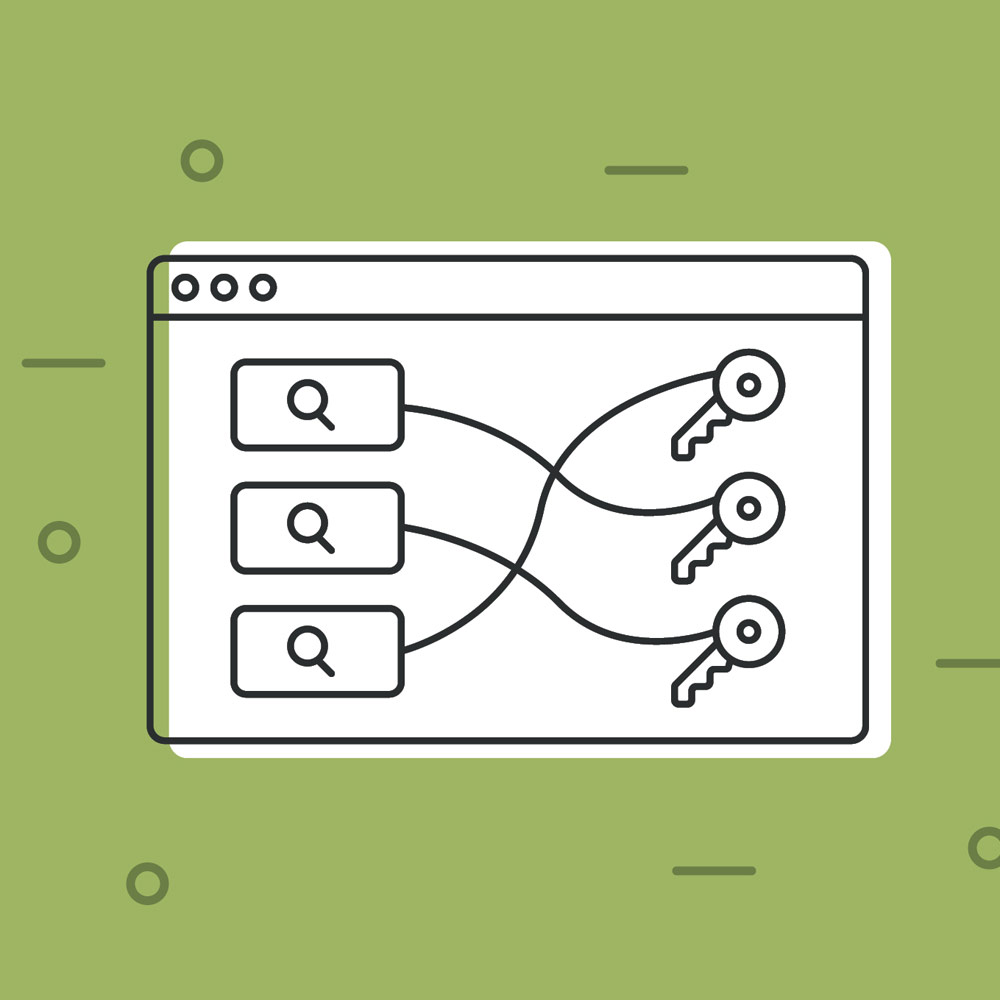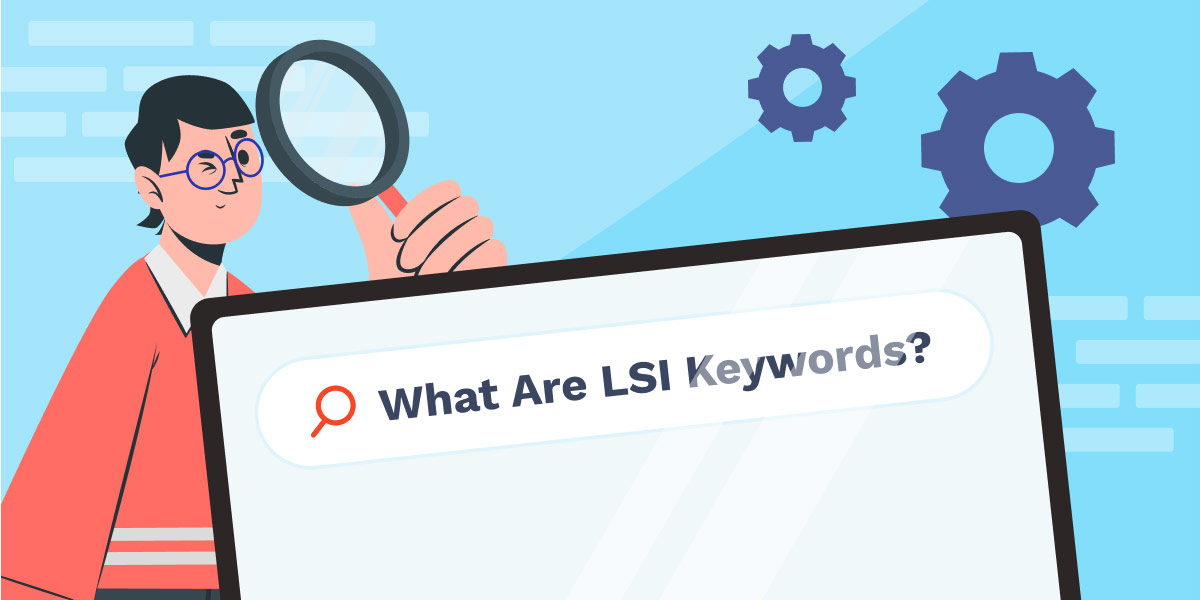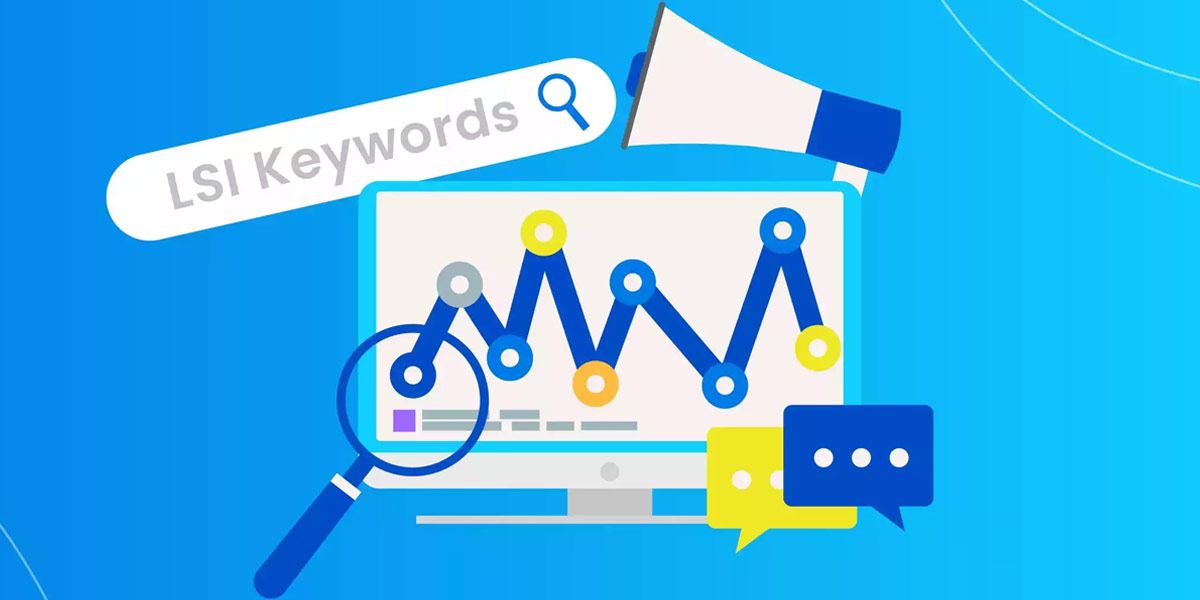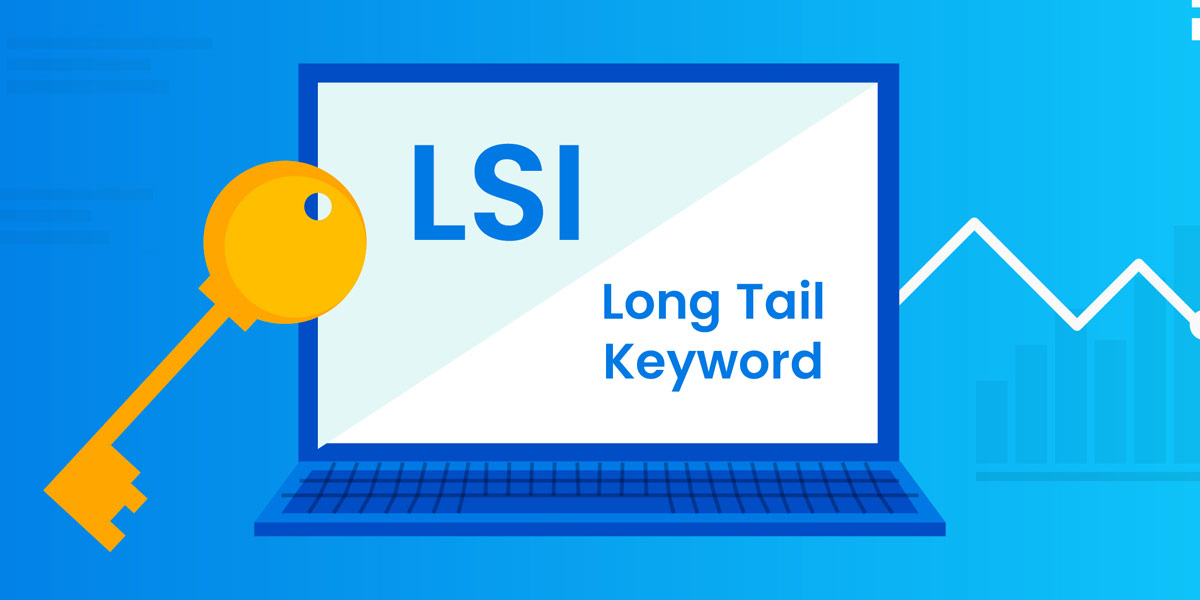What Are LSI Keywords and How They Enhance SEO

In the ever-evolving world of search engine optimization (SEO), staying ahead of the curve is crucial to ensure your website’s visibility and success. One important aspect of SEO that has gained significant importance in recent years is the utilization of LSI keywords. In this article, we will explore what LSI keywords are, their impact on SEO, how to find and use them effectively, and their relationship with latent semantic indexing and user intent. So, let’s dive in and discover the power of LSI keywords.
Introduction to LSI Keywords
In the quest for improved search engine rankings, digital marketers and website owners are constantly exploring innovative strategies. LSI keywords, also known as Latent Semantic Indexing keywords, have emerged as an effective tool to enhance the visibility and relevance of web content. By incorporating LSI keywords into your content, you can improve search engine rankings, attract more organic traffic, and provide a better user experience.
What are LSI Keywords?
LSI keywords are words or phrases that are semantically related to a given topic or main keyword. They help search engines understand the context and relevance of a webpage’s content. LSI keywords are not synonyms; rather, they are words that often appear together with the main keyword or within the same context. Search engines utilize LSI keywords to determine the topic and understand the overall content of a webpage.

What are LSI Keywords?
How LSI Keywords Impact SEO
Improve Relevance and Context
One of the key benefits of using LSI keywords is that they improve the relevance and context of your content. By incorporating related terms and phrases, you provide search engines with a clearer understanding of your content’s subject matter. This helps search engines deliver more accurate and relevant search results to users, increasing the chances of your content being discovered.
Enhance Search Engine Rankings
LSI keywords play a vital role in enhancing search engine rankings. When search engines recognize the relevance and contextual consistency of your content, they are more likely to rank it higher in search results. By incorporating LSI keywords strategically throughout your content, you increase the chances of attracting organic traffic and reaching a wider audience.
Increase Organic Traffic
The use of LSI keywords can significantly increase organic traffic to your website. When you optimize your content with relevant LSI keywords, search engines are more likely to display your web pages in search results for a broader range of queries. This expanded visibility allows you to tap into new audiences and generate more organic traffic, ultimately boosting the overall performance of your website.
LSI Keywords vs. Exact Match Keywords
LSI keywords differ from exact match keywords in terms of their usage and purpose. While exact match keywords precisely match the search query, LSI keywords provide a broader context and help search engines understand the overall theme of your content. LSI keywords allow you to create content that is comprehensive, informative, and aligned with user intent, thereby improving the overall quality and relevance of your website.

LSI Keywords vs. Exact Match Keywords
How to Find LSI Keywords
Discovering relevant LSI keywords is crucial for optimizing your content effectively. Here are some methods to find LSI keywords:
Google’s Related Searches
Google’s “Related Searches” feature is an excellent starting point for finding LSI keywords. Simply perform a search using your main keyword, scroll to the bottom of the search results page, and look for the “Searches related to…” section. This provides you with a list of LSI keywords that are frequently associated with your main keyword.
Keyword Research Tools
Utilize keyword research tools such as SEMrush, Ahrefs, or Google Keyword Planner to uncover LSI keywords related to your main keyword. These tools provide insights into search volume, keyword difficulty, and related keywords, helping you identify relevant LSI keywords to incorporate into your content.
Analyzing Competitor Content
Analyzing competitor content can also be a valuable strategy for finding LSI keywords. Identify top-ranking pages in your niche, analyze their content, and take note of the keywords they are using. This can provide you with ideas for relevant LSI keywords that you may not have considered.

How to Find LSI Keywords
Using LSI Keywords Effectively
Once you have identified relevant LSI keywords, it’s essential to use them effectively to maximize their impact. Here are some tips:
Incorporating LSI Keywords Naturally
When using LSI keywords, it’s crucial to incorporate them naturally within your content. Avoid keyword stuffing or overusing LSI keywords, as this can negatively affect the readability and user experience of your content. Instead, focus on seamlessly integrating LSI keywords where they fit naturally and enhance the overall flow of your content.
Balancing LSI Keywords and Exact Match Keywords
Striking a balance between LSI keywords and exact match keywords is important for a well-rounded SEO strategy. While LSI keywords provide context and relevance, exact-match keywords still hold significance. Use a mix of both types of keywords strategically throughout your content to optimize for search engines while maintaining readability and relevance.
Avoiding Keyword Stuffing
Keyword stuffing, which involves excessively using keywords in an attempt to manipulate search engine rankings, is an outdated and ineffective tactic. Instead, focus on providing valuable and informative content that incorporates LSI keywords naturally. This approach ensures your content is reader-friendly and provides a positive user experience.

Using LSI Keywords Effectively
LSI Keywords and Content Optimization
Effective content optimization involves incorporating LSI keywords in various elements of your webpage. Here are some key areas where you can utilize LSI keywords:
Optimizing Meta Tags and Descriptions
Including LSI keywords in your meta tags, such as the meta title and meta description, helps search engines understand the topic and relevance of your webpage. These elements appear in search engine results, so optimizing them with LSI keywords can entice users to click on your link.
Using LSI Keywords in Headings and Subheadings
Incorporating LSI keywords in your headings and subheadings not only improves the organization and structure of your content but also provides additional context to search engines. Use relevant LSI keywords in H1, H2, H3, and H4 headings to enhance the overall optimization of your webpage.
Sprinkling LSI Keywords Throughout the Content
While it’s important to include LSI keywords in prominent areas, such as headings and meta tags, don’t forget to sprinkle them naturally throughout the body of your content. This reinforces the topic and relevance of your webpage and provides search engines with more information to understand and index your content accurately.
LSI Keywords and Latent Semantic Indexing
To fully comprehend the power of LSI keywords, it’s essential to understand the concept of latent semantic indexing (LSI). LSI is a mathematical technique that helps search engines analyze the relationships between words and phrases within a given document. By leveraging LSI, search engines can identify the context and relevance of your content, even if exact match keywords are not explicitly present.
Understanding Latent Semantic Indexing (LSI)
LSI uses a complex algorithm to create a mathematical representation of the relationships between terms and concepts in a given dataset. This enables search engines to grasp the contextual meaning of words and identify the thematic relevance of web content.
How LSI Helps Search Engines Understand Content
By utilizing LSI, search engines can understand the meaning of a webpage beyond just its keywords. LSI identifies patterns and relationships between words, allowing search engines to provide more accurate and relevant search results to users. This enables search engines to deliver content that matches the user’s intent, enhancing the overall search experience.
Leveraging LSI for Better Rankings
Incorporating LSI keywords strategically into your content allows you to leverage the power of LSI for better search engine rankings. When search engines identify that your content contains semantically related terms, they associate it with a higher level of relevance and authority, which can positively impact your rankings.

LSI Keywords and Latent Semantic Indexing
LSI Keywords and User Intent
Understanding and aligning with user intent is crucial for effective SEO. LSI keywords can help you achieve this by providing comprehensive information that satisfies user queries. Here’s how LSI keywords are connected to user intent:
Aligning Content with User Intent
By incorporating LSI keywords that are closely related to the main topic, you align your content with user intent. Understanding what users are searching for and delivering content that meets their needs enhances the user experience and increases the likelihood of engagement and conversions.
Providing Comprehensive Information
LSI keywords enable you to provide comprehensive and informative content that covers various aspects of a topic. This ensures that your content caters to users who are looking for detailed information, allowing you to establish authority and credibility in your niche.
The Future of LSI Keywords
As search engines continue to evolve, the role of LSI keywords is expected to become even more significant. Here are a couple of factors shaping the future of LSI keywords:
Evolving Search Engine Algorithms
Search engine algorithms are constantly evolving to deliver more accurate and relevant search results. LSI keywords align with this goal by providing search engines with a better understanding of the context and relevance of web content. As search algorithms become more sophisticated, LSI keywords will continue to play a vital role in optimizing content for improved rankings.
Machine Learning and Natural Language Processing
Advancements in machine learning and natural language processing are reshaping how search engines interpret and analyze content. These technologies enable search engines to grasp the meaning behind words and phrases, allowing for a more nuanced understanding of content. LSI keywords, with their emphasis on contextual relevance, align perfectly with these advancements and will continue to be a valuable tool for content optimization.

The Future of LSI Keywords
Conclusion
In the ever-changing landscape of SEO, LSI keywords provide a powerful tool to enhance the visibility, relevance, and user experience of your web content. By incorporating LSI keywords strategically and naturally, you can improve search engine rankings, attract more organic traffic, and align with user intent. As search engine algorithms and technologies continue to evolve, leveraging LSI keywords will remain a fundamental aspect of successful SEO strategies.
FAQ
How do I find LSI keywords?
Finding LSI keywords can be done through methods such as Google’s “Related Searches” feature, keyword research tools, and analyzing competitor content. These approaches help uncover semantically related keywords that can enhance your content’s relevance and visibility.
What are LSI keywords and do they matter?
LSI keywords, or latent semantic indexing keywords, are words and phrases that are closely related to the main topic or keyword. They matter because they provide context and improve content relevance, helping search engines understand the overall theme and meaning of your content.
How to use LSI keywords in SEO?
To use LSI keywords effectively in SEO, incorporate them naturally throughout your content. Use them in headings, subheadings, and meta tags, and sprinkle them throughout the body of your content. By using LSI keywords strategically, you can enhance your content’s visibility and relevance to both search engines and users.
What are LSI keywords vs secondary keywords?
LSI keywords differ from secondary keywords in terms of their purpose and relationship to the main keyword. LSI keywords provide context and help search engines understand the overall theme, while secondary keywords are additional targeted keywords that support the main keyword.
Do LSI keywords help with SEO?
Yes, LSI keywords help with SEO by improving content relevance, increasing organic traffic, and enhancing search engine rankings. When you incorporate LSI keywords naturally and strategically, search engines recognize the contextual consistency of your content, resulting in improved visibility and better user experience.
What is the definition of LSI keywords?
LSI keywords, or latent semantic indexing keywords, refer to words and phrases that are semantically related to the main topic or keyword of a piece of content. These keywords help search engines understand the context and relevance of the content, leading to better search results for users.
Are LSI keywords synonyms of the main keyword?
LSI keywords are not necessarily synonyms of the main keyword. While some LSI keywords may be synonyms, they can also include related terms, concepts, or variations that provide a broader context to the content. LSI keywords contribute to a more comprehensive understanding of the topic by search engines.
How can LSI keywords improve content relevance?
LSI keywords improve content relevance by providing additional context and thematic consistency. By incorporating LSI keywords that are closely related to the main topic, your content becomes more comprehensive and aligned with user intent, resulting in improved relevance and user engagement.
Why are LSI keywords important for search engine rankings?
LSI keywords are important for search engine rankings because they help search engines understand the overall theme and relevance of your content. When search engines recognize the contextual consistency and relevance of your content through LSI keywords, they are more likely to rank your web pages higher in search results.
How does latent semantic indexing (LSI) affect SEO?
Latent semantic indexing (LSI) affects SEO by enabling search engines to analyze the relationships between words and phrases within the content. By using LSI, search engines gain a deeper understanding of the context and relevance of web content, which positively impacts search rankings and enhances the overall search experience.
Is there a tool to generate LSI keywords?
Yes, there are tools available that can help generate LSI keywords. Keyword research tools such as SEMrush, Ahrefs, and LSIGraph provide insights into related keywords and terms, assisting in the discovery of LSI keywords for your content optimization.
How can I use LSI keywords to improve my blog articles?
To improve your blog articles with LSI keywords, identify relevant LSI keywords using research tools or by analyzing related search terms. Incorporate these keywords naturally within your blog content, including headings, subheadings, and throughout the body of the article. By doing so, you enhance contextual relevance, which can lead to better search engine rankings and increased organic traffic.
What is the role of LSI keywords in semantic understanding?
LSI keywords play a crucial role in semantic understanding by providing additional context and expanding the breadth of a topic. They help search engines grasp the underlying meaning of content beyond exact match keywords. By using LSI keywords, you facilitate a more comprehensive understanding of your content, leading to improved semantic relevance and better search engine visibility.
How can LSI keywords help search engines better understand the content?
LSI keywords assist search engines in better understanding content by providing contextual clues and semantic relationships. These keywords enable search engines to associate your content with relevant topics and understand the broader context of your content, resulting in improved accuracy in delivering search results that align with user intent.
Are there any benefits of using LSI keywords in SEO?
Yes, using LSI keywords in SEO offers several benefits. Firstly, it improves content relevance and aligns with user intent, enhancing the overall user experience. Secondly, it helps search engines understand the context of your content, leading to improved search rankings. Lastly, LSI keywords provide an opportunity to expand the scope of your content and cover a wider range of related topics, attracting a broader audience.

